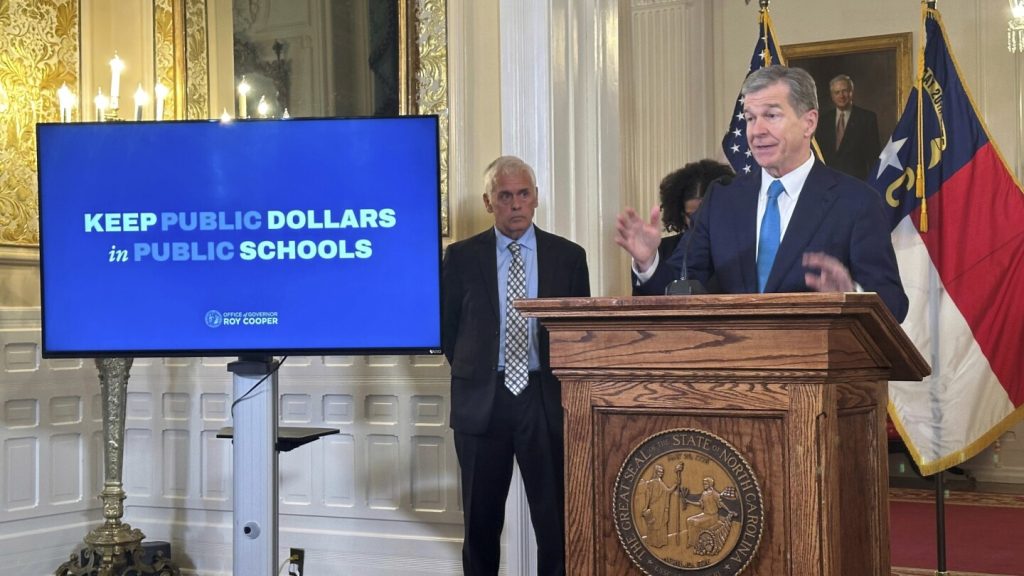North Carolina Gov. Roy Cooper vetoed legislation that allocated funds to an expanded private school voucher program and ordered sheriffs to cooperate with federal immigrant agents looking for individuals in the country illegally in county jails. Cooper, a longtime critic of using taxpayer dollars for private school vouchers, had already vetoed two previous versions of the immigration bill. With Republicans holding narrow veto-proof majorities in both chambers, Cooper’s veto was likely to be overridden. The vetoed bill combined the two provisions within a supplemental spending bill that also included funding for Medicaid and public schools.
Legislative leaders indicated that they would consider additional overrides in the fall, as they would have to act by year’s end or advance a new bill. Cooper expressed concerns about the expansion of private school vouchers, stating that wealthy individuals would not let their vouchers be taken away if the expansion continued. The compromise legislation allocated $463.5 million more to the state’s Opportunity Scholarship program to eliminate a waitlist of roughly 54,000 children. This increase in funding was a response to a surge in applications after legislators removed income limits for qualifying families.
Republicans emphasized that providing full funding for scholarships was a priority, and they also wanted additional funds for public schools. The bill aimed to give parents more options in their child’s education while bolstering public schools. However, Cooper and other critics argued that expanding the private school voucher program would negatively impact public schools, particularly in rural areas. The veto was seen as a safeguard for every child’s right to a quality public education, according to Washington County Schools board Chair Carlos Riddick.
In addition to the private school voucher program, the bill also required county sheriffs to comply with U.S. Immigration and Customs Enforcement detainers for inmates believed to be in the country unlawfully and charged with serious crimes. Supporters of the immigration provisions argued that they were necessary for public safety, as some sheriffs were not honoring ICE detainers. However, opponents raised concerns that these provisions could target the state’s Hispanic population unconstitutionally, leading to harm for families and reduced trust in local law enforcement. The vetoed bill highlighted the ongoing debate over education funding and immigration enforcement in North Carolina.


